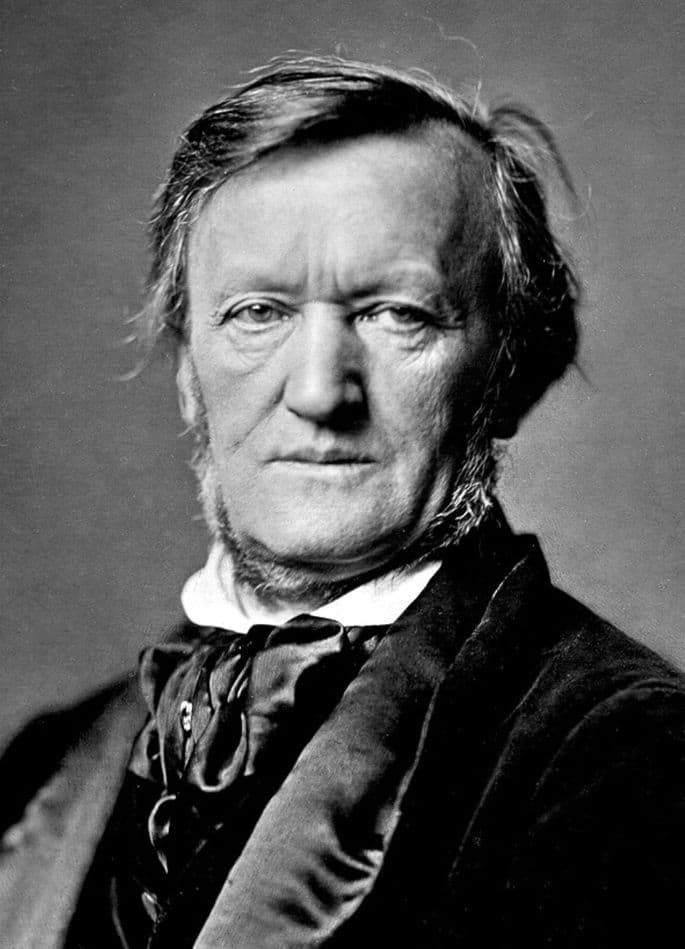The Flying DutchmanComposer and Librettist
In the concert hall, we are never far from the influence of Richard Wagner. But we are often far from his music. Wagner’s revolutionary works are his operas—indeed, with just a few exceptions, operas comprise his entire output as a composer—and they are difficult to excerpt. Though they contain gorgeous orchestral passages aplenty, the music is “durchkomponiert” (through-composed), flowing without convenient interruptions. Free-standing arias and orchestral interludes are rare. That leaves us with the Siegfried Idyll, a chamber composition not originally intended for public performance, and the magnificent overtures and preludes that precede his operas.
Wagner had not yet completed his third opera, Rienzi, when he was inspired to compose Dutchman. These are considered early works, when the aesthetic concept that underpins his operas—the Gesamtkunstwerk, or total work of art that seamlessly unifies the visual arts, poetry, drama, dance movement, and music—was still taking shape. But Wagner was already writing his own librettos. He based Rienzi on the kind of turgid, complex, Italian-based historical novel that was typical of grand-opera plots of the day. But Dutchman shows him moving toward his more mature artistic concerns, taking a traditional Germanic folk tale and raising it to a high level of artistic refinement. What was once a haunting, atmospheric yarn that might have been spun around a campfire was transmuted to a compelling, fully wrought music-drama of redemption through love.
Wagner was seeking to transform classical music generally and German opera in particular, and viewed himself—not without justification—as the genius chosen for this task. He had adopted the grandiose lifestyle he deemed appropriate for himself and his wife Minna, but the public and the artistic establishment had not yet caught up with his own view of his greatness. This left his personal affairs in turmoil while he composed Rienzi, with creditors on his heels and artistic projects in collapse. It was during this period that the idea for Dutchman came to him on a trip through the Norwegian fjords. As he described it,
The voyage through the Norwegian reefs made a wonderful impression on my imagination; the legend of the Flying Dutchman, which the sailors verified, took on a distinctive, strange coloring that only my sea adventures could have given it.

Fueled by these accounts and by a somewhat satirical version rendered by Heinrich Heine, Wagner produced a full draft of the story on May 1840. Originally envisioned as a one-act opera, The Flying Dutchman premiered in 1843 in a form more closely resembling full-blown grand opera, in three acts.


